大家好!this is a Chinese culture + langblr sideblog (I interact from atomic-moose) mostly for me to organize all my learning into one place. Also posting chengyu (Chinese proverb) stories as I learn them. I hope you enjoy!
Don't wanna be here? Send us removal request.
Text
中文 weights & measures
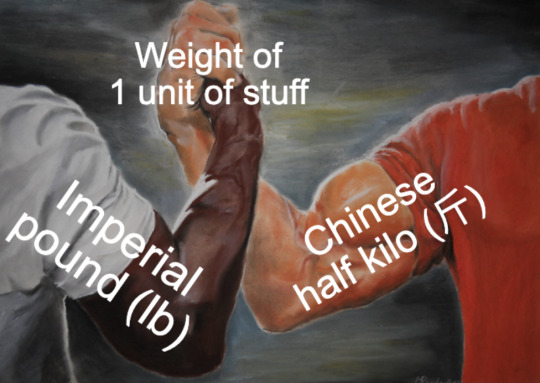
大家好!
Fellow Chinese learners are almost certainly familiar with "measure words", which indicate units of items. Their prevalence can introduce some frustration for students, but other languages are also chock full of them! While the 个 character is a catch-all that can be used universally, many other more specific options exist, like cup and box:
杯 (bēi) - cup; 一杯水 (one cup of water)
盒 (hé) - box; 两盒巧克力 (two boxes of chocolate)
But that's for another post.
Today I'd like to talk about weights and where to find them! For example, did you know that the most common Chinese measure for weights (斤, half-kilogram or 500g) is very close to the most common imperial unit of weight "pound" (lb, 453.6g)? Gotta love humans :)
Here's some weight words spanning 6 orders of magnitude:
克 (kè) - 1 gram
Grams are unsurprisingly most commonly used for small and/or light things! When we purchased loose leaf tea in Hangzhou, we mostly ordered using units of 克, though we did order a few in scales of 两.
两 (liǎng) - 50 grams
In my experience, units of 两 were most common for noodles! The 米粉 that we commonly ate for breakfast (pic below) in Sichuan come in sets of 两, referring to the weight of noodles in your bowl order.
斤 (jīn) - 500 grams (half kilogram)
Half-kilogram units (斤), sometimes translated as "catty" in English, are extremely common for purchasing things like produce. For example, you might see a sign like 苹果 5元/斤. Weights of people are also commonly given in 斤, though may sometimes be reported in 公斤 as well.
公斤 (gōngjīn) - 1000 grams (1 kilogram)
Full kilograms can be used anywhere that they would be in your native sense of scale. I didn't see too much of it while in the southern regions of China, but I hear for example that the northern parts of the country, where trips to the grocery store are minimized, prefer to purchase produce in units of 公斤.
吨 (dūn) - 1 metric ton (1000 kilograms)
Gonna be honest, I didn't see the word 吨 at all, but it's included here for completeness. Plus it's super easy to remember! So might as well add it to your repertoire of weights :)
Weights in real life:
You can feel free to mix-and-match units as needed. Like I mentioned above, we purchased a few different types of loose-leaf tea at different scales. At the smallest scale, we ordered some teas in units of 两 aka 五十克, and some at the 250g scale as 五两 aka 一半斤, and the owners gifted us a few 克 of tea for our purchases.
Finally, as promised, here's what 二两米粉 looks like!
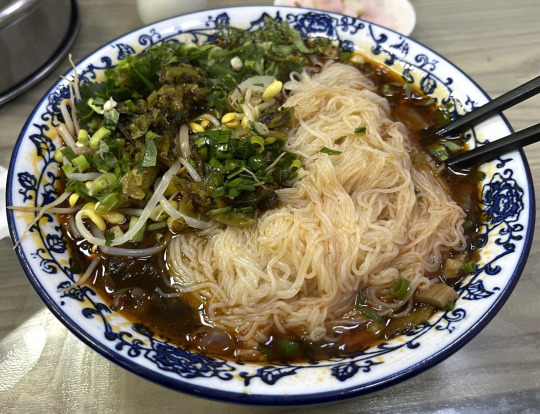
🤤🤤🤤
(I miss it .... ;_;)
I hope this post helps calibrate you at scales of weights in Chinese! Fortunately, there are many fewer words for this than measure words ;)
See you next time! 下次见!
#vocab#mandarin vocab#grammar#mandarin grammar#mandarin#chinese language#mandarin chinese#chinese#language learning#chinese vocab#chinese grammar#mandarin langblr#chinese langblr#langblr#measure words#weights#克#两#斤#公斤#吨
83 notes
·
View notes
Text
😈😈😈 D A R K C U I S I N E 😨😨😨
大家好!
Have you ever eaten anything ... unusual ... dark ... twisted ... sprung from the mind of a chef determined to leave their mark on society, for better or for worse?
I have.
At least, that's what some of my friends called this meal when I posted it to my WeChat moments! XD
I give you:
黑暗料理 (hēiàn liàolǐ) – literally "dark cuisine" 😱😱
And what, you ask, was the cuisine in question? Why, none other than:
皮蛋香菜披萨 (pídàn xiāngcài pīsà) – thousand-year egg and cilantro pizza (or "century egg" and "coriander" if you prefer), fresh from the Pizza Hut at a 万达 mall!!


What do you think? Is this pizza an abomination or a stroke of genius?
We were told this was an new offering that they were seeking feedback on (read "experimental"), and as someone who enjoys both cilantro and preserved eggs, I just had to try. It was certainly an experience!
See you next time! 下次见!
15 notes
·
View notes
Text
All The 来 Words?? Are we in the past or future??

最近我在做练习册,到问题包括词语将来,本来和原来,我想起虽然我在句子中明白他们的意思,而我真的不理解他们的区别和有用。如此我查一下,这是我的结果:
Recently I worked a practice set that included the words 将来,本来,and 原来, and I realized that, while I could understand sentences that included them because of context, if you simply asked me the differences between these words I wouldn’t be able to tell you. So again I set out to try to figure it out, and here’s what i’ve come up with:
Words that refer to the past
原来: refers to the past or a specific period of the past; can also indicate that you found out something you didn’t know before
例如:原来我以为中国是奇怪的国家,其实中国和美国有很多同意的东西。
本来: can also be understood as “originally” or “at first;” used also to express “of course” or “it goes without saying”
例如:我本来愿意帮你搬家,你需要着急麻烦我。
从来: has the meaning “since… (some time in the past)”
例如:从来我小的时候我一直并没有吃过这些菜。
以来: similar to 从来 but indicates that something is continuous from the past to the present, i.e. “has been this way all along;” like 从来 it requires other words to make sense
例如:开学以来我们是好朋友,但是现在他变得认不出来了。
Words that refer to the future
将来: refers to a prediction for the future, or something you are waiting to happen
例如:他将来要做个老师。
后来: in contrast to 将来, 后来 refers to something that has already happened, is a certainty, and that the speaker is thus reporting about afterward
例如:我听说他已经毕业了,后来去上海当律师。
未来: also refers to the future, but implies something is “coming,” “approaching,” or “next” - seems to have the implication of “impending” in English (but without the negative connotation)
例如:在我们未来的生活,我答应你,我不会离开了。
If you know other words that could be added to this list, please let me know! Thank you~
#super useful!!#reblog#chinese langblr#chinese language#mandarin#中文#chinese vocabulary#chinese grammar#vocab
100 notes
·
View notes
Text
极光 - Aurora Borealis




你最近看到我们小地球的极光了吗?幸运的是我现在旅游的地方可以看到,然后学了一个新词语。
Did you get to see the aurora that hit our small planet recently? Luckily I’m out traveling somewhere where it was visible, and learned a new word along the way:
极光 (jí guāng) - aurora / northern lights
While usually I translate 极 as “extreme”, it can also mean “pole”, so you can take your pick as to whether the aurora is the “extreme light of all time” or “polar lights (still p extreme though)” XD
Not planned at all, just happened to be in the right place at the right time (1-2 am local).
#aurora#aurora borealis#northern lights#vocab#mandarin#chinese language#mandarin chinese#chinese#language learning#mandarin vocab#chinese vocab#mandarin langblr#langblr#极光
28 notes
·
View notes
Text

These are the apps and links I currently have on my phone to study Chinese:
SuperChinese: my main study resource. There are currently 7 levels, level 7 (still incomplete, they are still slowly adding lessons to it) being HSK 5 stuff. Each lesson has vocabulary, grammar and a short dialogue where those are used in context (I love context). It has a few free lessons in the lower levels but after that you have to buy a subscription. There are many sales though. When I was a beginner I used HelloChinese instead, which has more free content, and switched to SuperChinese when I finished all the free content there. It also has social network features and chat rooms I don't use.
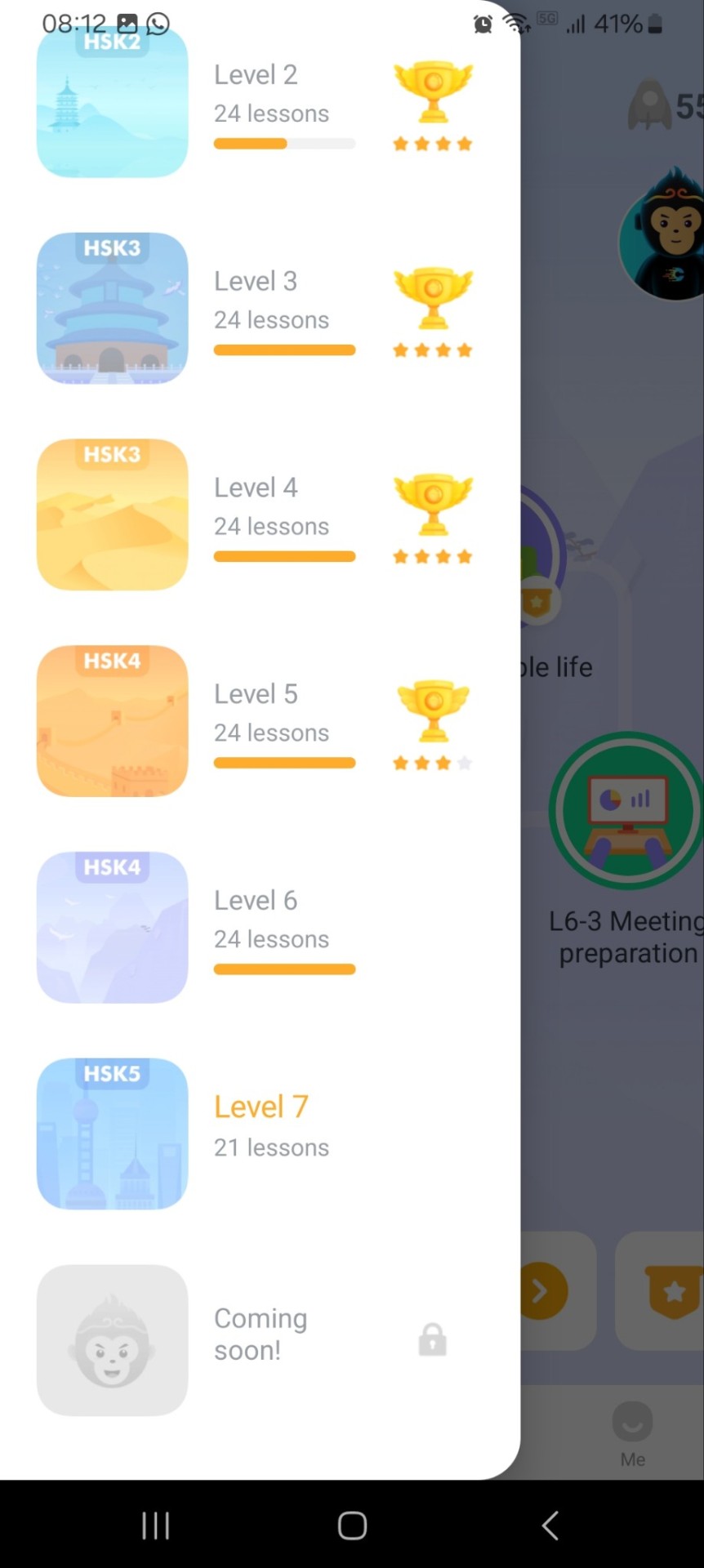
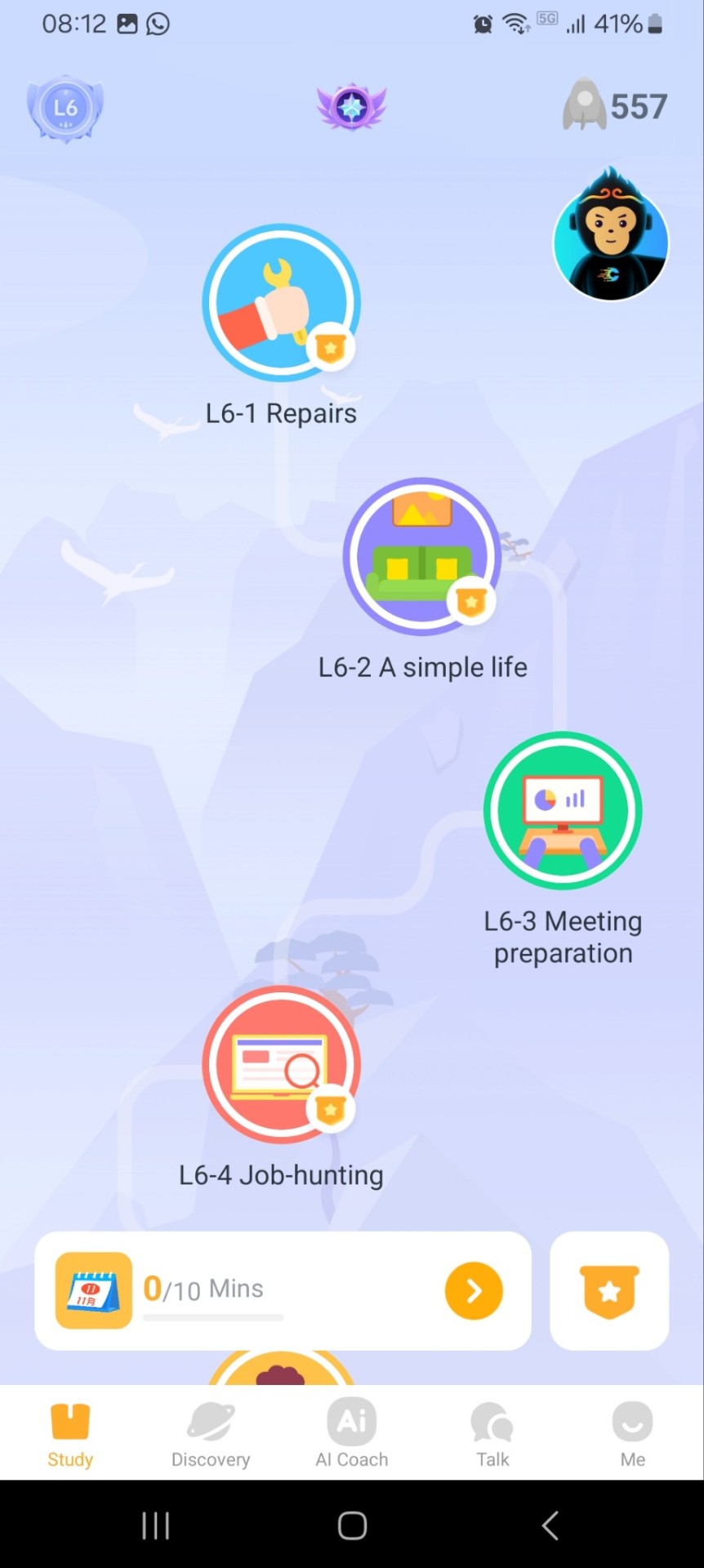
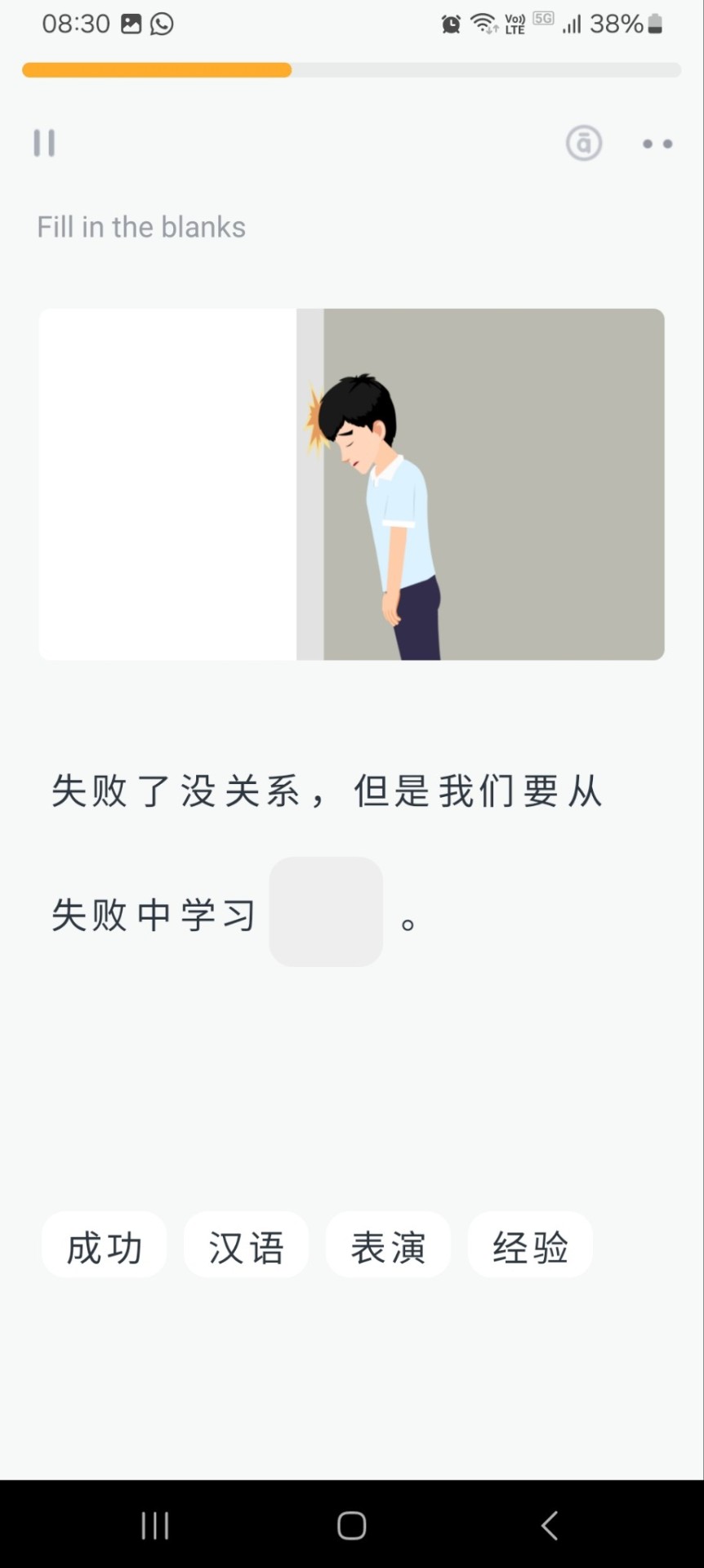

TofuLearn is like a flashcard app with many pre-made decks (you can also create your own on their website and import decks from Anki) and the option to practice writing hanzi. Anki didn't work for me, but I find Tofu very helpful. Practicing writing helps me with character recognition, and it also helps me remember the tones thanks to the audio in the pre-made HSK decks.
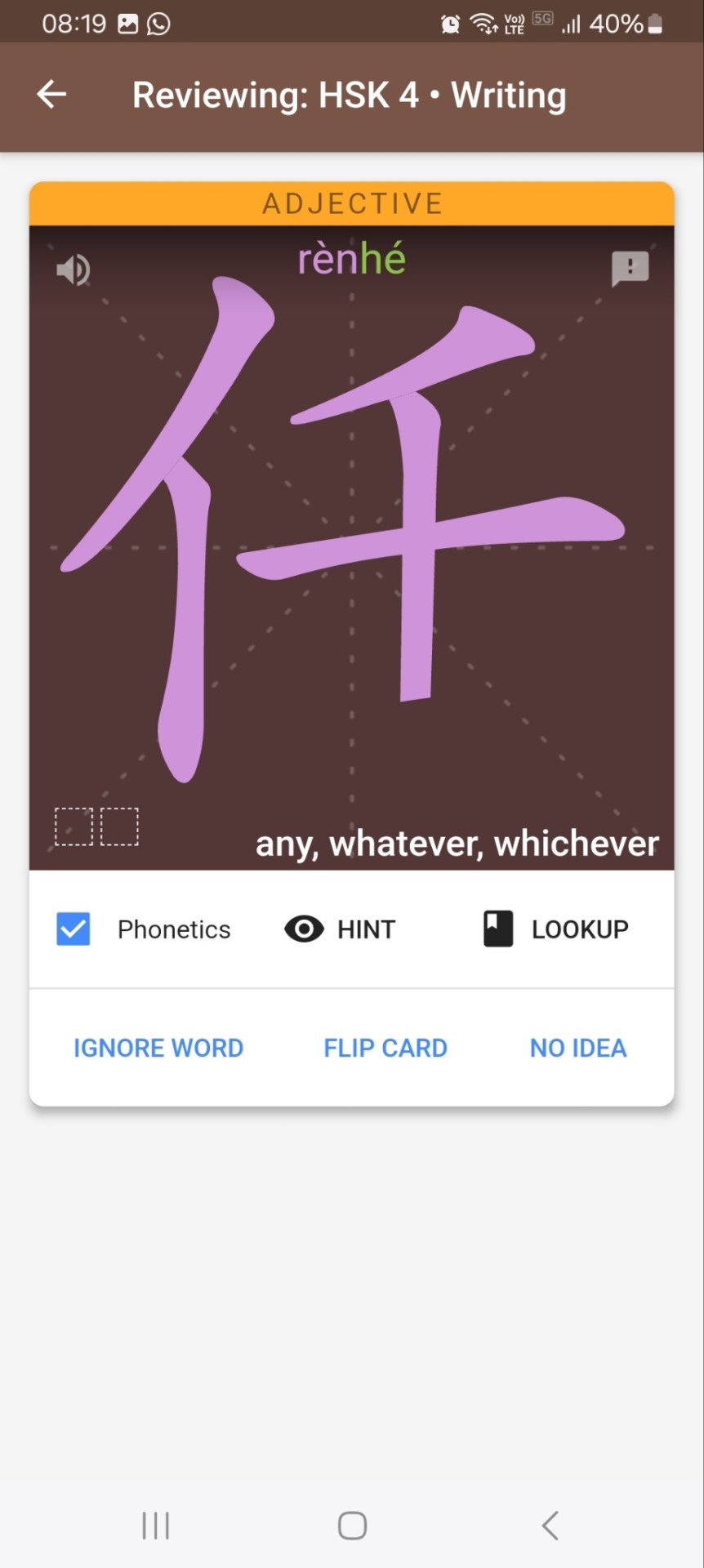
Dot is a reading app with new texts being added every day. It used to be completely free, which actually seemed too good to be true, and then they put practically everything behind a paywall and very strict limits for free users. After a couple of months they made it a little less restricted though - we still can't choose the articles but we can read as many as we want as long as we do the vocabulary exercises after each article (plus, during the Spring Festival, they made all articles available for free for 3 days and we could save the ones we were interested in to read later). It follows the new, not-yet-implemented (and harder) HSK levels, so you should start one or two levels below yours and if the texts are too easy move up.
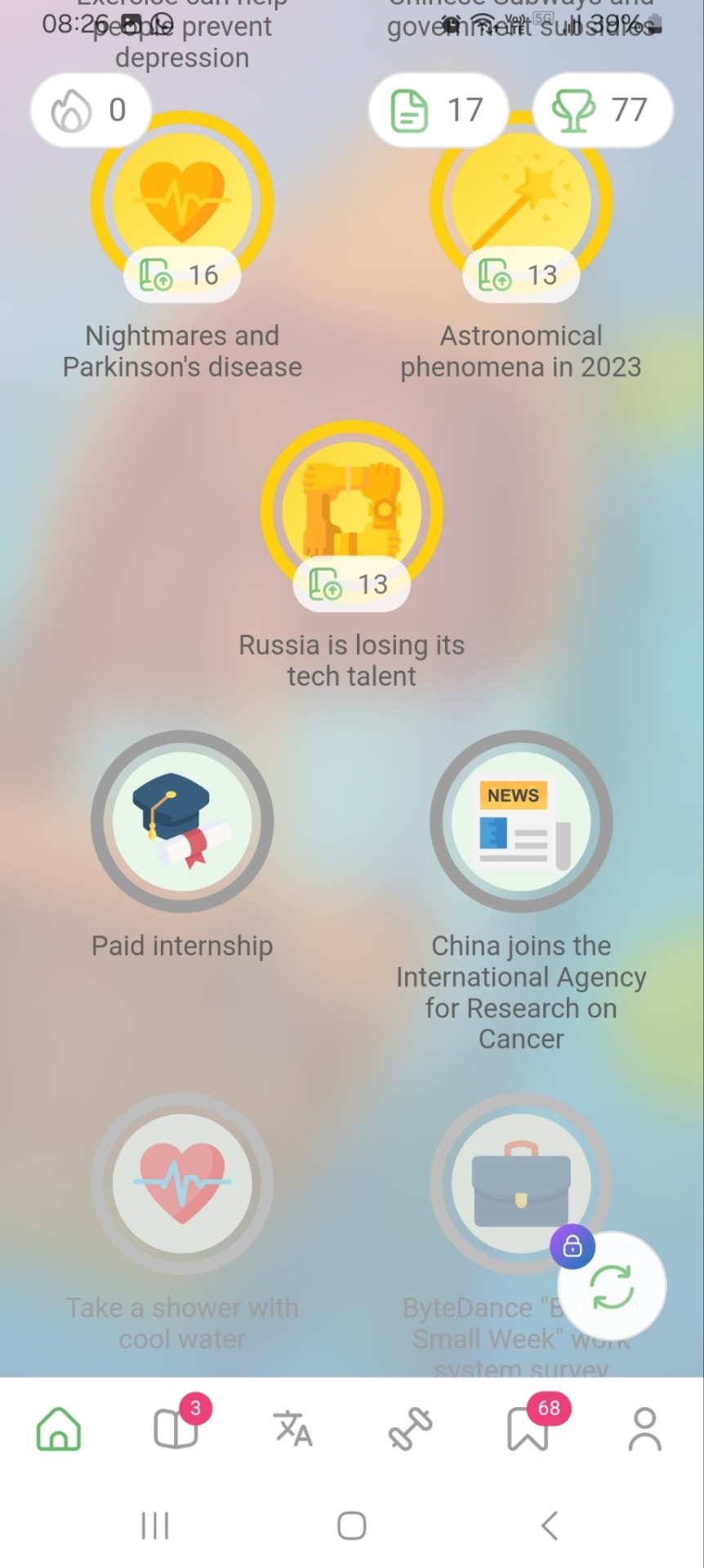
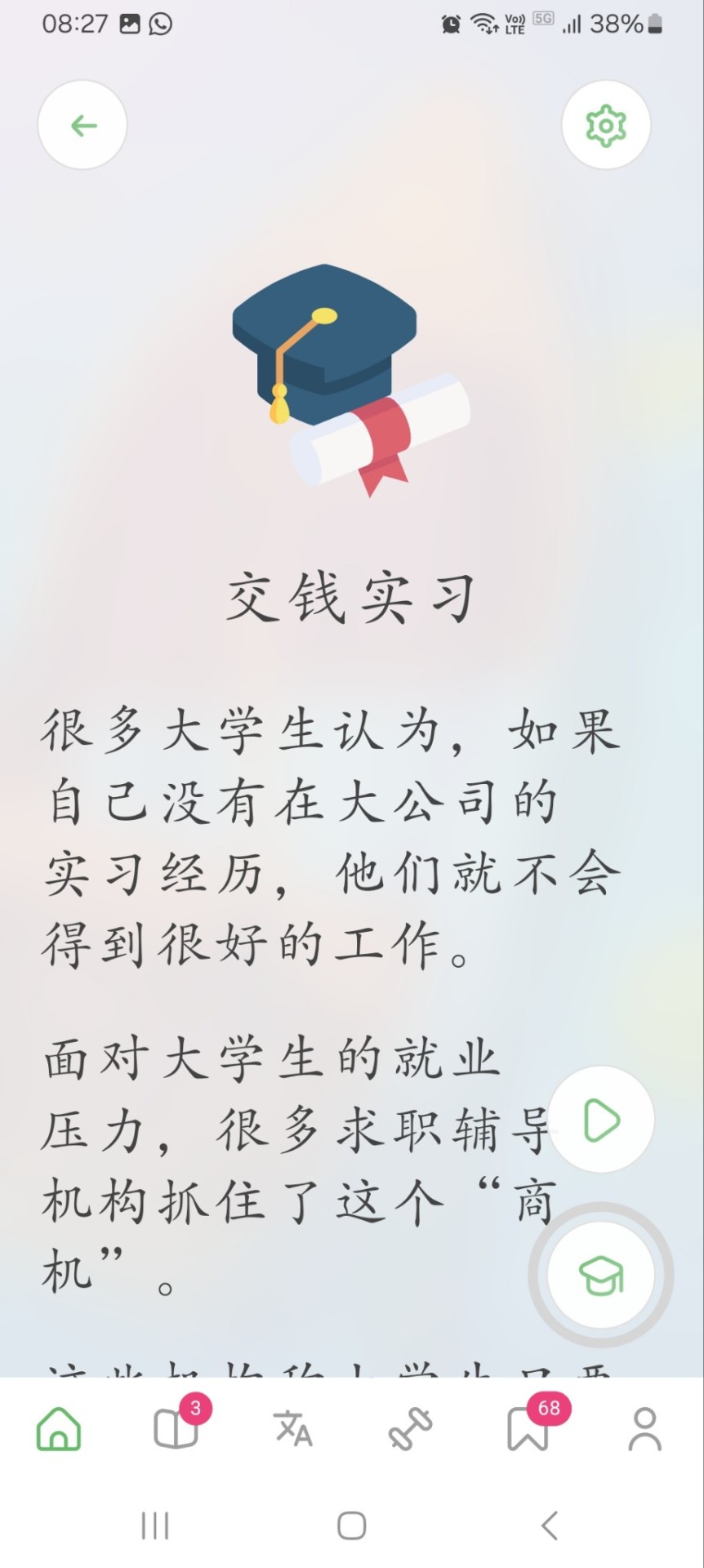
Google Translator: not the best but helpful when I need to translate whole sentences, plus I can point my camera or open an image and it translates writing.
Pleco: best Chinese to English dictionary.
Stroke Order: not an app but a website, does what it says in the tin: shows stroke order for a specific character.
YouGlish: also a website, you can put a word or phrase and it shows videos where people say that word/phrase. Very cool.
Todaii is a graded news app that has only two levels: easy and hard. I'm around level HSK4 and the "easy" level is quite hard though (but I admit reading is my nemesis).
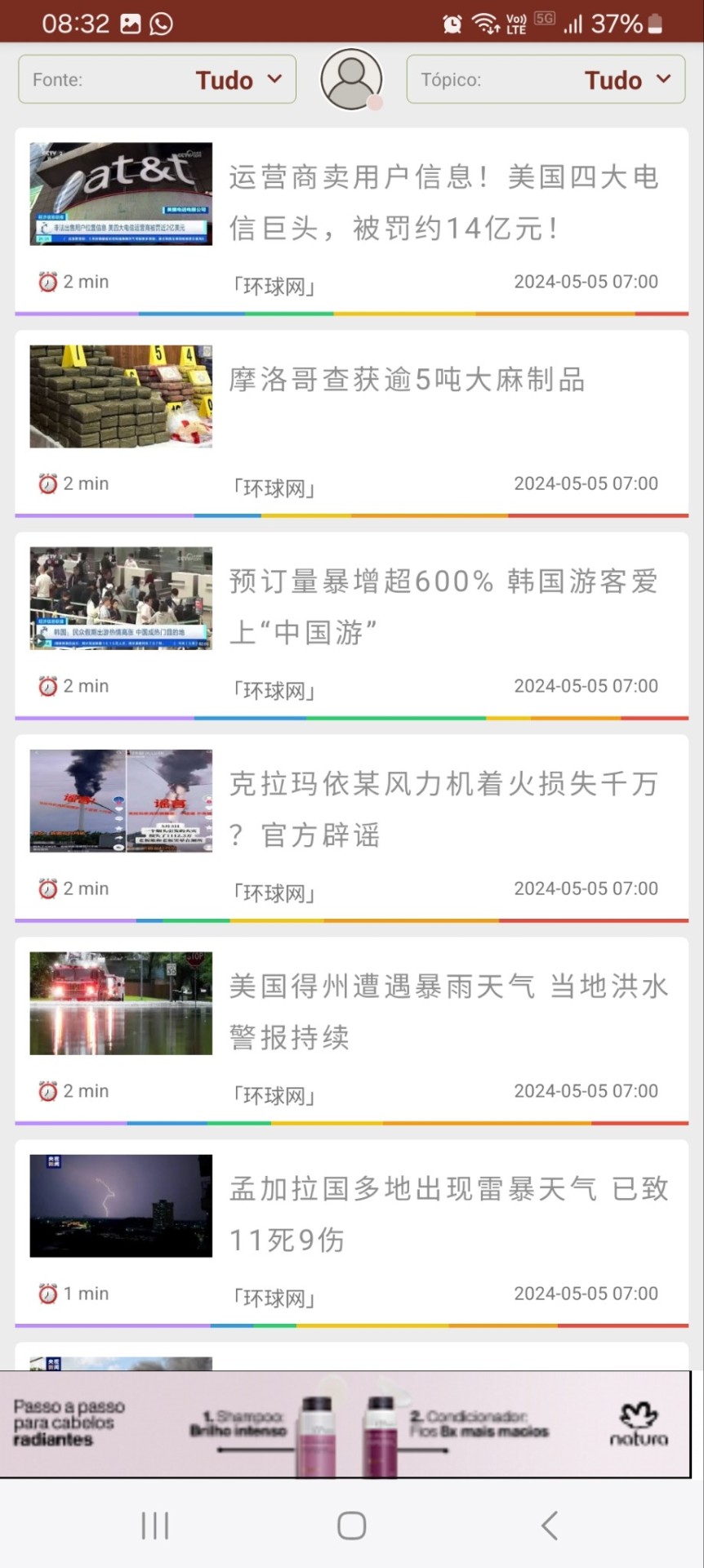
I also use YouTube and Spotify a lot.
#some great suggestions!#gonna check out the higher levels of superchinese and see what todaii is all about#I’ve been quite happy using du chinese for graded readers too!#their flashcards seem a bit like what tofulearn has going on#thanks Mari!#resources#learning chinese#language learning#chinese language#mandarin#中文
622 notes
·
View notes
Text
没 vs 无

大家好!
You may have seen the characters 没 (méi) and 无 (wú) both used to mean "without" or "have not", but what exactly differentiates them?
I had this question when I saw a beverage labeled 无糖 (wú táng) to indicate "sugar free". While I could guess the meaning based on knowing the two characters individually, I wondered why isn't it 没(有)糖? Here's how it was explained to me:
无糖 (wú táng) - no sugar added (on purpose).
For example: 你们有没有无糖饮料?(nǐmen yǒuméiyǒu wútáng yǐnliào) - Do you have any sugar free drinks?
没糖 (méi táng) - no sugar added (mistakenly, or an insufficient amount)
For example: 啊!我的咖啡没糖!我忘了加任何 (ā! wǒ de kāfēi méitáng! wǒ wàngle jiā rènhé) - Ah! My coffee doesn't have any sugar in it! I forgot to add any.
This structure applies to other nouns too! However, I did think of another example from words I know where this doesn't quite work:
没(有)人 (méiyǒu rén) - "nobody" (literally "there doesn't exist this person)
无人(机) (wúrén jī) - "drone" or "UAV" (literally "without person machine", close to the formal English name of "Unmanned Aerial Vehicle"). The picture above is from a drone show we saw at a Lantern Festival during the Chinese New Year!
I found this Chinese StackExchange post on the topic and there were some useful clues! Here's what the top answer wrote:
1. 无 is more like "non-" or "un-" in English, and 无 is used in some idioms or fixed phrases. In those words we don't use 没有. 2. When 没有 is used for "not" in English to negate something, 没有 can NOT be replaced with 无. 3. When 没有 is used for "without" in English, it can be replaced with 无. But I am not sure if it is always true.
The last clue is the case I encountered above, while 没有人 ("such a person does not exist") vs 无人机 (un-manned aerial vehicle) fit the other two clues!
I hope these examples help clarify the different use cases of 没 and 无! Do you know any others? Feel free to add on!
See you next time! 下次见!
#vocab#mandarin vocab#grammar#mandarin grammar#mandarin#chinese language#mandarin chinese#chinese#language learning#chinese vocab#chinese grammar#mandarin langblr#chinese langblr#langblr#没有#无#没有 vs 无
24 notes
·
View notes
Text
萝卜's Essential Chinese Characters #3
大家好!
For our next round of essential Chinese characters, this one can be a bit more (imo) entertaining rather than truly essential in day-to-day communication. But it’s certainly commonly found on signage and so it was deemed essential! Today’s word is:
文明 (wénmíng) – “civilized”, “civilization”, “culture”
This is a word that you will find in many signs around China. While 文明 is commonly used in the latter two meanings (see some examples below), in signs it is most often the first meaning! It often reads like the signs are scolding you to “be civilized!” which is quite amusing. In practice, it’s can also be used to mean something akin to “orderly”, for example:
请文明排队 (qǐng wénmíng páiduì) – please line up in an orderly (“civilized”) manner. Of course, you can also ask people to "please party in a civilized manner" (请文明派对, qǐng wénmíng pàiduì) too if you'd like ;)
Some examples using the other meanings include:
古文明 (gǔ wénmíng) – ancient civilization
精神文明 (jīngshén wénmíng) – spiritual culture
东方文明 (dōngfāng wénmíng) – Eastern civilization
If you search online for “文明 sign” you can find plenty of images, but the only picture I have is from inside a restroom (just the sign!) so I’ve put it under the cut in case anyone is concerned about that 😅
Do you know any other common phrases that you find amusing to read? Let me know!
See you next time! 下次见!

Yup this is the picture LOL! Clearly a riff off of the original moon landing phrase, another translation of 向前一小步,文明一大步 might be "One small step forward (for you), one big step (forward) for mankind". Hope you enjoyed this little bonus!
#vocab#mandarin vocab#mandarin#chinese language#mandarin chinese#chinese#language learning#chinese vocab#mandarin langblr#chinese langblr#langblr#essential characters#文明
9 notes
·
View notes
Text
😈😈😈 D A R K C U I S I N E 😨😨😨
大家好!
Have you ever eaten anything ... unusual ... dark ... twisted ... sprung from the mind of a chef determined to leave their mark on society, for better or for worse?
I have.
At least, that's what some of my friends called this meal when I posted it to my WeChat moments! XD
I give you:
黑暗料理 (hēiàn liàolǐ) – literally "dark cuisine" 😱😱
And what, you ask, was the cuisine in question? Why, none other than:
皮蛋香菜披萨 (pídàn xiāngcài pīsà) – thousand-year egg and cilantro pizza (or "century egg" and "coriander" if you prefer), fresh from the Pizza Hut at a 万达 mall!!


What do you think? Is this pizza an abomination or a stroke of genius?
We were told this was an new offering that they were seeking feedback on (read "experimental"), and as someone who enjoys both cilantro and preserved eggs, I just had to try. It was certainly an experience!
See you next time! 下次见!
#vocab#mandarin vocab#mandarin#chinese language#mandarin chinese#chinese#language learning#chinese vocab#mandarin langblr#chinese langblr#langblr#chinese phrases#dark cuisine#黑暗料理
15 notes
·
View notes
Text
萝卜's Essential Chinese Characters #2

大家好!
Hello again for another round of essential Chinese characters! When I was in China, we took a lot of taxis. They’re everywhere, reasonably priced, and fast. While you can call for a ride-share type service using a Chinese navigational app like 高德地图 (I like to read it as “above average maps" XD), it’s usually pretty convenient to just hail one on the street. How do you know which ones are available though? I’ll tell you how, you read the sign! Here’s what you need to know:
空车 (kōngchē) – literally “empty car”, meaning it’s available!
有客 (yǒukè) – literally “have guest/customer”, meaning you should catch the next one!
The funny thing about this is that while these two phrases seem to be fairly universal, the colors they show up as differ from location to location. So while in Chengdu 空车 is in red (see the picture), and 有客 is in green, these colors were flipped in other cities! So there’s no easy catch-all in terms of colors, you do have to read!
I felt a bit weird taking pictures of active taxis while abroad, so I just found the above picture online (source). This taxi looks a bit older, though it still has the classic green of Sichuan!
See you next time! 下次见!
P.S. Fun fact about license plates in China: the first two characters refer to the province and city where the car was registered. So in the above picture, you can see that this license plate is 川A meaning that it is from Sichuan (四川) city "A", which in this case is the capital Chengdu! It's quite fun looking at the cars driving around and see where everyone has come from, especially during a holiday time like Chinese New Year!
#vocab#mandarin vocab#mandarin#chinese language#mandarin chinese#chinese#language learning#chinese vocab#mandarin langblr#chinese langblr#langblr#essential characters#空车#有客
28 notes
·
View notes
Text
I discovered I have more to add! Here's a few more tendencies:
The "guo" sound in Sichuanese is pronounced as "gui" (more specifically kinda like "gway"/"gwei")! I have no idea why this is, but it seems to be a specific case for the "guo" sound. So for example, if you want to say "China" you would not pronounce 中国 as zhōngguó but rather as zōngguì (or perhaps zōnggwěi). Don't forget about dropping the "h" in "zh"!
Relatedly, the "e" sound in characters pronounced like "re", "ze", "de" often gets streeeettched out to be more like "ei". So you would get "rěi" "zěi" "děi" and so on. Since they get stretched I often imagine them as 3rd tones. This is separate from the other tendency for the "e" sound to sometimes get changed to an "o", such as in the example in the original post of 可以 being pronounced as "kǒyǐ"
There is a special Sichuanese suffix that is pronounced as "ol". So far I only know two examples that both start with "j" so that part may not be universal. The first example is that the 觉 in 觉得 is not pronounced jué, but rather as jól. In fact, in classic Sichuanese fashion, the 得 also gets converted to a děi so in total 觉得 is pronounced "jólděi". The other example is that the word for foot 脚 (jiǎo) is pronounced jǒl.
Allegedly Sichuanese is not too difficult to parse for native speakers, but there are so many differences it's amazing if that's the case! Will add more if/as I recall them :)
萝卜's Beginner Guide to Sichuanese!
大家好!
Welcome to the first in an unofficial series of posts where I will share the (very large) amount of new vocab, cultural experiences, and topics that I was introduced to while spending ~5 weeks in China!
Today’s topic is: Sichuanese! 🌶️🌶️🌶️
I won’t pretend to be an expert in Sichuanese (yet, please chime in / add here if you are!), but I spent >50% of my time in the province while abroad which gave me lots of exposure. It certainly took me by surprise at the beginning! After about two weeks I started to get a better feel for it. Here’s some tips and vocab for getting started:
1. Get ready to hear 得 (“dei” pronunciation) just about everywhere, this is an essential character thrown around constantly. Most common are these three words:
要得 (yǎodei) – yes, good
没得 (módei) – no
晓得 (xiǎodei) – understand, aka 明白
Sometimes it also just randomly appears, for example 得行 (deixíng) has the exact same meaning as 行 (fine, okay)! You just gotta expect it.
2. The majority of Sichuanese people do not pronounce the “h” in sounds like ���ch”, “sh”, “zh”. This makes it very tricky for a student (like me!) who still internally looks up lots of words, so any “s-” word could be a word that starts with “sh-” OR a word that just starts with “s-”. Some examples:
橙汁 (chéngzhī) as "cengzi"
这儿 (zhè’er) as “zer”
什么时候 (shénme shíhou) as “sazisihou”
是不是 (shìbùshì) as “sib’si” (with the u sound in “bu” typically omitted)
3. The “an” sound is pronounced as in the English word “can” (as opposed to the usual pronunciation which is a bit more like the “awn” sound in “yawn”). Combined with (2), this has the very cute effect of turning 吃饭 (chīfàn) into something more like “cifaan”, and is something you should expect to hear a lot in a province like Sichuan! Just be aware that this applies to every “an”-suffixed word and can sometimes totally change how you hear it. In many ways I feel like this feature makes it sound a bit reminiscent of American southern dialects.
4. There are a few other Sichuanese alternative pronunciations to be aware of:
“Hu” is often pronounced as “fu”, leading 护照 (hùzhào) to sound like “fuzao”, or 西湖 (Xīhú) as “xifu”
“R” sounds can sometimes be pronounced with a “y”, e.g. 容 (róng) as “yong”
Most tricky is that the flat 1st tone is very rare, and many characters simply have different tones than “Standard” Mandarin. As far as I can tell (and have read online), there isn’t really a systematic adjustment for this, it’s just how it is ¯\_(ツ)_/¯
5. Surprisingly, though Sichuan is a southern province, there are tons of erhua around! At least here, it seems like the 儿 ends up quite merged with the original word. Some examples I heard:
米粉 (mǐfěn) as “mifer” (extremely delicious breakfast option!)
老板 (lǎobǎn) as “laober”
没得 (módei) as “moder” (apparently extremely rarely heard though)
豆花 (dòuhuā) as “douhua’er” (quite common in northern Mandarin as well)
熊猫 (xióngmāo) as “xiongmer”
And finally, a few more Sichuanese specialties!
好(多)钱 - how much does it cost, aka 多少钱 (the 多 is sometimes omitted in quick speech)
啥子 (sázi) – what, based on the casual substitute word 啥 for 什么 (also often pronounced as sáza)
闹热 (nàorè) – lively, as opposed to the usual 热闹
可以 (kěyǐ), pronounced as as “kǒyǐ”
冒菜 (màocài) – a local variant of malatang (麻辣烫)
抄手 (chāoshǒu) – (v) to fold arms up the sleeves; (四川) wonton, dumpling
稀饭 (xīfàn) – congee, 粥, literally "thin rice"
干饭 (gānfàn) – regular rice, 米饭, "dry rice" to distinguish from 稀饭
嘛 (ma) - often heard at the end of sentences, just a local sound! Not (as I understand it) generally associated with some of its other meanings (like impatience, stating the obvious, etc)
See you next time. 下次见!
#vocab#sichuan#sichuanese#sichuan dialect#mandarin#mandarin vocab#chinese language#mandarin chinese#chinese#language learning#chinese vocab#mandarin langblr#chinese langblr#langblr#chinese dialect
52 notes
·
View notes
Note

LOL gave me a pause when you popped in my recommended 🙏 cool blog btw
Haha wow! Well I’ll consider this an opportunity to attract all sorts of crowds to enjoy the love of language learning :) thanks for the kind words and the laugh!
0 notes
Text
萝卜's Essential Chinese Characters #1
大家好!
When spending time in China, there were several characters/words that I wasn't familiar with (as an ~HSK4 learner) yet seemed to pop up everywhere! Being so prevalent, I tried to take note of them and now can share them with you all over a series of posts! If you're planning to visit China, I hope you follow along and find these posts useful :)
Today's character is: 区 (qū)!
区, meaning "district", "area", "region", etc, can be found in a multitude of contexts. Some explicit examples from my experience are:
小区 (xiǎoqū) – home community, neighborhood. The apartment complexes/condos where many citizens live are usually in the form of several high-rises built around a central recreation/park area, sometimes also with a school, markets, restaurants, etc all right downstairs! Collectively, this living space is known as a 小区. You can find one of my pictures of a 小区 below!!
凉菜区 (liáng cài qū) – literally “cold dish area” aka where the cold dishes are located in a restaurant
NFC区 (NFC qū) – “near-field communication zone” aka where you should tap your card/phone to transfer information such as payment or identification
景区 (jǐngqū) – scenic area, related to the similar term 景点 (jǐngdiǎn) meaning “scenic point”
Other examples:
区号 (qūhào) – area code (literally “area number”)
城区 (chéngqū) – city district, similar to 市区 (shìqū) meaning “urban district” or “downtown”
地区 (dìqū) – local, regional, area; when used as a suffix to a city name, means “prefecture” or “county”
时区 (shíqū) – time zone
Have you encountered 区 before in your studies? Let me know if you have other favorite 区 words!
See you next time! 下次见!
(Picture of a 小区 under the cut)
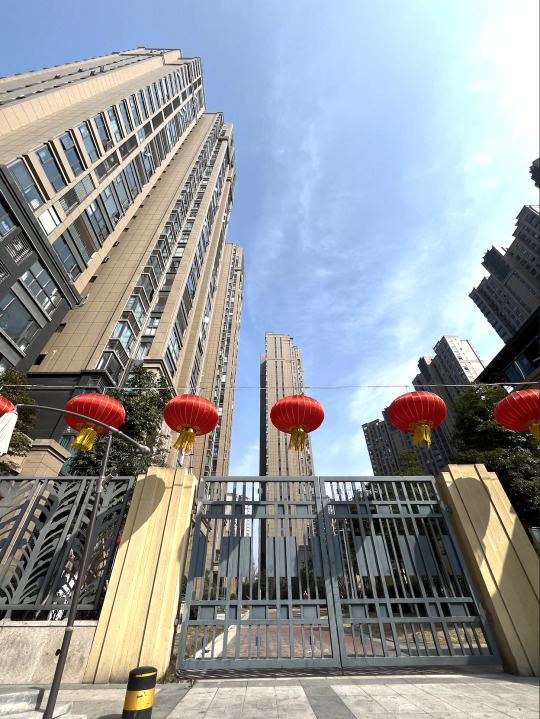
#vocab#mandarin vocab#mandarin#chinese language#mandarin chinese#chinese#language learning#chinese vocab#mandarin langblr#chinese langblr#langblr#essential characters#区
46 notes
·
View notes
Text
Oh another one that came up recently! The use of 搞 (gǎo) in place of 干 (gàn)! Both characters can mean "to do" (with the 4th tone pronunciation of 干), but the use of 搞 is another regional preference.
In practice, 搞 is usually pronounced more like gào. Combining it with other Sichuanese sounds, you often hear things like:
你搞啥子 (nǐ gào sázi) – what are you doing?
你在搞啥 (nǐ zài gào sǎ) – another variant of above, but often used more like a greeting or conversation opening resembling "what's up"? In this flavor, the sǎ has extra emphasis and tends to sound more like the 3rd tone
Once you've mastered that, keep your ears open for another common variant, where sǎ is actually pronounced "hǎ". This is often said even more casually (or abruptly). For example, you tap somebody's shoulder to get their attention and they reply "ò! gàohǎ?" (哦!搞啥?), the same way you might reply "oh! what's up?"
Very fun to say! Next time you pick up the phone (or see a friend), instead of a 喂?hit 'em with a (你在) 搞啥?and enjoy the roll off the tongue :)
萝卜's Beginner Guide to Sichuanese!
大家好!
Welcome to the first in an unofficial series of posts where I will share the (very large) amount of new vocab, cultural experiences, and topics that I was introduced to while spending ~5 weeks in China!
Today’s topic is: Sichuanese! 🌶️🌶️🌶️
I won’t pretend to be an expert in Sichuanese (yet, please chime in / add here if you are!), but I spent >50% of my time in the province while abroad which gave me lots of exposure. It certainly took me by surprise at the beginning! After about two weeks I started to get a better feel for it. Here’s some tips and vocab for getting started:
1. Get ready to hear 得 (“dei” pronunciation) just about everywhere, this is an essential character thrown around constantly. Most common are these three words:
要得 (yǎodei) – yes, good
没得 (módei) – no
晓得 (xiǎodei) – understand, aka 明白
Sometimes it also just randomly appears, for example 得行 (deixíng) has the exact same meaning as 行 (fine, okay)! You just gotta expect it.
2. The majority of Sichuanese people do not pronounce the “h” in sounds like “ch”, “sh”, “zh”. This makes it very tricky for a student (like me!) who still internally looks up lots of words, so any “s-” word could be a word that starts with “sh-” OR a word that just starts with “s-”. Some examples:
橙汁 (chéngzhī) as "cengzi"
这儿 (zhè’er) as “zer”
什么时候 (shénme shíhou) as “sazisihou”
是不是 (shìbùshì) as “sib’si” (with the u sound in “bu” typically omitted)
3. The “an” sound is pronounced as in the English word “can” (as opposed to the usual pronunciation which is a bit more like the “awn” sound in “yawn”). Combined with (2), this has the very cute effect of turning 吃饭 (chīfàn) into something more like “cifaan”, and is something you should expect to hear a lot in a province like Sichuan! Just be aware that this applies to every “an”-suffixed word and can sometimes totally change how you hear it. In many ways I feel like this feature makes it sound a bit reminiscent of American southern dialects.
4. There are a few other Sichuanese alternative pronunciations to be aware of:
“Hu” is often pronounced as “fu”, leading 护照 (hùzhào) to sound like “fuzao”, or 西湖 (Xīhú) as “xifu”
“R” sounds can sometimes be pronounced with a “y”, e.g. 容 (róng) as “yong”
Most tricky is that the flat 1st tone is very rare, and many characters simply have different tones than “Standard” Mandarin. As far as I can tell (and have read online), there isn’t really a systematic adjustment for this, it’s just how it is ¯\_(ツ)_/¯
5. Surprisingly, though Sichuan is a southern province, there are tons of erhua around! At least here, it seems like the 儿 ends up quite merged with the original word. Some examples I heard:
米粉 (mǐfěn) as “mifer” (extremely delicious breakfast option!)
老板 (lǎobǎn) as “laober”
没得 (módei) as “moder” (apparently extremely rarely heard though)
豆花 (dòuhuā) as “douhua’er” (quite common in northern Mandarin as well)
熊猫 (xióngmāo) as “xiongmer”
And finally, a few more Sichuanese specialties!
好(多)钱 - how much does it cost, aka 多少钱 (the 多 is sometimes omitted in quick speech)
啥子 (sázi) – what, based on the casual substitute word 啥 for 什么 (also often pronounced as sáza)
闹热 (nàorè) – lively, as opposed to the usual 热闹
可以 (kěyǐ), pronounced as as “kǒyǐ”
冒菜 (màocài) – a local variant of malatang (麻辣烫)
抄手 (chāoshǒu) – (v) to fold arms up the sleeves; (四川) wonton, dumpling
稀饭 (xīfàn) – congee, 粥, literally "thin rice"
干饭 (gānfàn) – regular rice, 米饭, "dry rice" to distinguish from 稀饭
嘛 (ma) - often heard at the end of sentences, just a local sound! Not (as I understand it) generally associated with some of its other meanings (like impatience, stating the obvious, etc)
See you next time. 下次见!
#vocab#sichuan#sichuanese#sichuan dialect#mandarin#mandarin vocab#chinese language#mandarin chinese#chinese#language learning#chinese vocab#mandarin langblr#chinese langblr#langblr#chinese dialect
52 notes
·
View notes
Text
萝卜's Beginner Guide to Sichuanese!
大家好!
Welcome to the first in an unofficial series of posts where I will share the (very large) amount of new vocab, cultural experiences, and topics that I was introduced to while spending ~5 weeks in China!
Today’s topic is: Sichuanese! 🌶️🌶️🌶️
I won’t pretend to be an expert in Sichuanese (yet, please chime in / add here if you are!), but I spent >50% of my time in the province while abroad which gave me lots of exposure. It certainly took me by surprise at the beginning! After about two weeks I started to get a better feel for it. Here’s some tips and vocab for getting started:
1. Get ready to hear 得 (“dei” pronunciation) just about everywhere, this is an essential character thrown around constantly. Most common are these three words:
要得 (yǎodei) – yes, good
没得 (módei) – no
晓得 (xiǎodei) – understand, aka 明白
Sometimes it also just randomly appears, for example 得行 (deixíng) has the exact same meaning as 行 (fine, okay)! You just gotta expect it.
2. The majority of Sichuanese people do not pronounce the “h” in sounds like “ch”, “sh”, “zh”. This makes it very tricky for a student (like me!) who still internally looks up lots of words, so any “s-” word could be a word that starts with “sh-” OR a word that just starts with “s-”. Some examples:
橙汁 (chéngzhī) as "cengzi"
这儿 (zhè’er) as “zer”
什么时候 (shénme shíhou) as “sazisihou”
是不是 (shìbùshì) as “sib’si” (with the u sound in “bu” typically omitted)
3. The “an” sound is pronounced as in the English word “can” (as opposed to the usual pronunciation which is a bit more like the “awn” sound in “yawn”). Combined with (2), this has the very cute effect of turning 吃饭 (chīfàn) into something more like “cifaan”, and is something you should expect to hear a lot in a province like Sichuan! Just be aware that this applies to every “an”-suffixed word and can sometimes totally change how you hear it. In many ways I feel like this feature makes it sound a bit reminiscent of American southern dialects.
4. There are a few other Sichuanese alternative pronunciations to be aware of:
“Hu” is often pronounced as “fu”, leading 护照 (hùzhào) to sound like “fuzao”, or 西湖 (Xīhú) as “xifu”
“R” sounds can sometimes be pronounced with a “y”, e.g. 容 (róng) as “yong”
Most tricky is that the flat 1st tone is very rare, and many characters simply have different tones than “Standard” Mandarin. As far as I can tell (and have read online), there isn’t really a systematic adjustment for this, it’s just how it is ¯\_(ツ)_/¯
5. Surprisingly, though Sichuan is a southern province, there are tons of erhua around! At least here, it seems like the 儿 ends up quite merged with the original word. Some examples I heard:
米粉 (mǐfěn) as “mifer” (extremely delicious breakfast option!)
老板 (lǎobǎn) as “laober”
没得 (módei) as “moder” (apparently extremely rarely heard though)
豆花 (dòuhuā) as “douhua’er” (quite common in northern Mandarin as well)
熊猫 (xióngmāo) as “xiongmer”
And finally, a few more Sichuanese specialties!
好(多)钱 - how much does it cost, aka 多少钱 (the 多 is sometimes omitted in quick speech)
啥子 (sázi) – what, based on the casual substitute word 啥 for 什么 (also often pronounced as sáza)
闹热 (nàorè) – lively, as opposed to the usual 热闹
可以 (kěyǐ), pronounced as as “kǒyǐ”
冒菜 (màocài) – a local variant of malatang (麻辣烫)
抄手 (chāoshǒu) – (v) to fold arms up the sleeves; (四川) wonton, dumpling
稀饭 (xīfàn) – congee, 粥, literally "thin rice"
干饭 (gānfàn) – regular rice, 米饭, "dry rice" to distinguish from 稀饭
嘛 (ma) - often heard at the end of sentences, just a local sound! Not (as I understand it) generally associated with some of its other meanings (like impatience, stating the obvious, etc)
See you next time. 下次见!
#vocab#sichuan#sichuanese#sichuan dialect#mandarin#mandarin vocab#chinese language#mandarin chinese#chinese#language learning#chinese vocab#mandarin langblr#chinese langblr#langblr#chinese dialect
52 notes
·
View notes
Text
大家好!
Hello hello! I am back from China and after a few weeks of crazy catch up at work after all my time away I am back to tumblr as well :)
I intend to start tomorrow sharing posts covering vocab and experiences I had abroad. Please look forward to it! I will try to keep them at least semi-regular :p
8 notes
·
View notes
Text

大家好!好久不见!
Sorry I’ve been away for quite some time, I’ll be gone for a little more and life has been busy preparing. Next week I’m going to China for the first time!!!! I’ll be there for around 5 weeks around Sichuan, Shanghai, and Hangzhou. I’m super excited to eat lots of food and experience the lunar new year in all of its chaos and cheer! I’m also hoping for a boost to my listening comprehension as part of my immersion, since I feel like I can usually express myself okay at this point. Time will tell…
As part of this milestone event, it also feels about time to drop Duolingo for good. Yesterday I reached a streak of 1111, which feels like a nice satisfying number. Tbh duolingo has mostly just been a counter for me for the past several months, tracking exactly how long it had been since I started learning, but I had pro anyways so I just kept it. Now that I’m just over 3 years in, it doesn’t seem worth it to keep. The lack of new content for Chinese as well as their dropping of real translators has helped me finally say it’s time to move on. It definitely was useful at the very beginning just for hammering vocab and bugging me to study, but there was sooooo much I had to learn outside of the app that I can’t imagine anyone trying to use it by itself.
Instead recently I’ve been using Du Chinese and loving it! The graded reader system is nice (I’m currently between intermediate and upper intermediate) and the topics are useful, including culture, slang, history, current events, and more! My favorite is the ability to turn any word in the stories into a flash card instantly. I was always too lazy to make my Anki by hand and just studying HSK premade decks seems a bit too dry vs learning in context, so the built in flash card + spaced repetition system works great for me. Highly recommend!!
Keep up all the good work my friends! I’ll try to be back more when I return and share some of the fun things I learned! 加油!
Wishing everyone a happy new year of the dragon! 祝大家新年快乐!恭喜发财!
6 notes
·
View notes